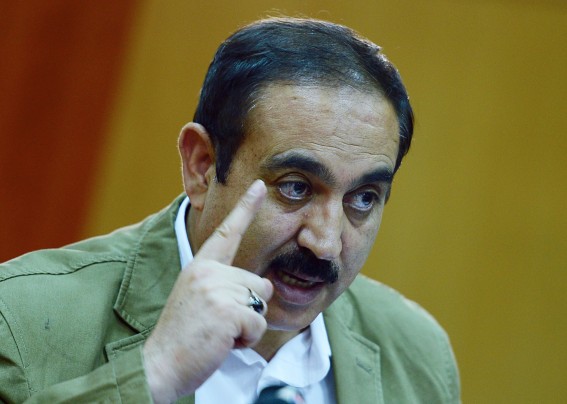Karzai suspended negotiations over the security agreement in a protest over proposed U.S.-backed peace talks with the Taliban in Doha, Qatar, that failed to meet his conditions. He has also raised questions about the United States’ ability to defend Afghanistan from Pakistani interlopers, which he deems a prerequisite for the agreement.
Although Dempsey expressed confidence in the Afghan security forces and the prospects for a bilateral agreement, his visit coincided with a vote by Afghan lawmakers to remove the country’s interior minister over concerns about Afghanistan’s security and an ineffective police force.
Members of parliament voted to oust Interior Minister Mujtaba Patang, one of the nation’s most influential officials, citing a sharp increase in police deaths in recent months as the number of Western troops in the country has declined. On Monday, Patang shocked many in Kabul when he announced this year’s official casualty numbers for the first time: He reported that 2,748 police officers were killed in the past four months, during the Taliban’s spring offensive.
Lawmakers accused Patang of graft and incompetence and criticized his alleged refusal to attend commission meetings and meet with various members of parliament.
But the most serious concern cited by lawmakers was the spread of attacks by Taliban-led insurgents.
In a news conference after the no-confidence vote, Patang defended his accomplishments and said many lawmakers had turned against him because he had reported them to Karzai for interfering in ministry affairs and seeking illegal favors.
Without naming names, Patang accused some lawmakers of involvement in drug smuggling and land grabs. He said part of the increase in violence was due to a jump in attacks against roadside convoys supplying fuel and commodities for the NATO coalition. In the past, he said, such convoys were escorted by private security firms, which would bribe the Taliban not to target them. Now, he said, with his police officers prohibited from engaging in that practice, more convoys are being attacked.
Patang also argued that insecurity preceded his 10-mont-long tenure, saying that 275,000 illegal firearms remain scattered across Afghanistan, a nation of about 31 million people.
Karzai rebuffed the parliament’s vote and said Patang would remain in office until a court decides whether the decision should be upheld.
Dempsey acknowledged the mounting casualties of the Afghan security forces, saying, “The police are at the point of greatest risk.”
When asked about the gulf between his confidence in the Afghan forces and the parliamentary vote, he said, “There may be a mismatch in expectations.”
Dempsey added that the U.S. military was working on a plan to reduce Afghan casualties but that there would undoubtedly be a need for more foreign assistance beyond 2014.
“There’s going to be a gap that we have to bridge,” he said, referring to casualty evacuations, close air support and several other key components that the Afghan forces still lack.
Dempsey’s remarks about the urgency of the bilateral security agreement marked a rare occasion that a high-level U.S. military official has suggested a timeline for such an accord.
“Militarily, I would like to understand the future more clearly through the bilateral security agreement sometime between now and October,” he said.
Sayed Salahuddin and Mohammad Sharif contributed to this report.


